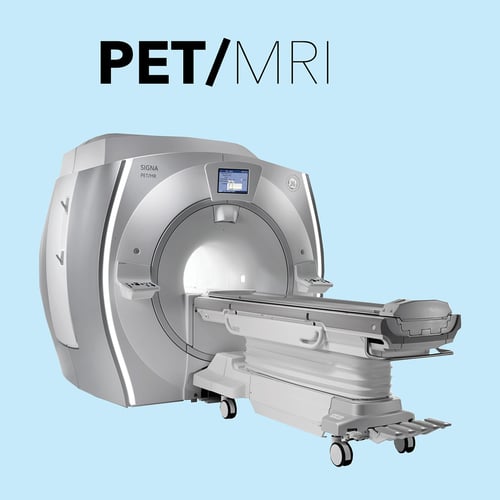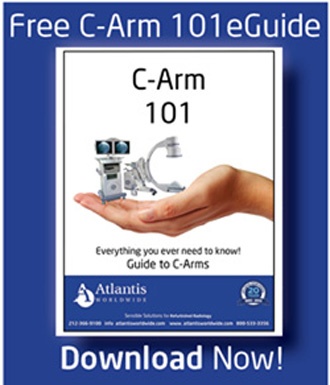A study by a German research team has determined that PET/MRI exams improved lesion detection by more than 15% when  compared with PET/CT in selected cancers. The study at the University of Duisburg-Essen in Essen, Germany consisted of more than 1,000 exams. The selected cancers were malignant bone disease and lung cancer. The study also showed that PET/MRI reduced ionizing radiation by almost 80% when compared with PET/CT. In 15.4% of all exams, additional lesions were identified on PET/MRI that weren’t detected on PET/CT, according to the article appearing in the August 2020 edition of the Journal of Nuclear Medicine Equipment.
compared with PET/CT in selected cancers. The study at the University of Duisburg-Essen in Essen, Germany consisted of more than 1,000 exams. The selected cancers were malignant bone disease and lung cancer. The study also showed that PET/MRI reduced ionizing radiation by almost 80% when compared with PET/CT. In 15.4% of all exams, additional lesions were identified on PET/MRI that weren’t detected on PET/CT, according to the article appearing in the August 2020 edition of the Journal of Nuclear Medicine Equipment.
The lead co-authors of the study, Dr. Ole Martin from the department of diagnostic and interventional radiology at University Dusseldorf, Medical Faculty and Dr. Benedikt Schaarschmidt from the University of Duisburg-Essen’s department of diagnostic and interventional radiology and neuroradiology, said, “PET/MRI improves lesion detection for selected cancers and potentially reduces the need for additional examinations in comparison with PET/CT."
For lung cancer and lymphoma, PET/CT had become the go-to method to improve cancer staging accuracy, optimize therapy strategies and improve patient outcome. But the modality has low soft-tissue contrast and emits radiation, unlike PET/MRI.
Several other studies have also shown PET/MRI’s effectiveness in imaging cancers, especially in prostate and the breast. However, the lack of high-quality data regarding other cancers has hindered PET/MRI’s widespread introduction into clinical practice, according to the study’s co-authors. They wanted to remedy this situation by comparing PET/MRI with PET/CT in different oncologic diseases at the German institution.
The patients at their institution underwent a whole-body PET/CT scan from skull to mid-thighs, as well as a whole-body PET/MRI. The patients presented with the following cancers:
- Lung cancer (17.9%)
- Gastrointestinal cancer or neuroendocrine tumors (17.2%)
- Gynecologic or breast cancer (14.8%)
- Prostate cancer (14.8%)
- Lymphoma (12.0%)
- Melanoma (8.7%)
- Head and neck cancer (8.0%)
- Cancer of unknown primary (4.3%)
- Malignant bone disease (2.4%)
Following some exclusions, 1,003 PET/MRI scans of 918 patients were examined, with PET/MRI outperforming PET/CT in terms of providing more tumor information—26.3% more, in fact. These were detected in patients with malignant bone cancer, lung cancer, prostate cancer and gynecologic or breast cancer. PET/MRI identified additional malignant findings in 5.3% of cases, which lead to a change in tumor, node, and metastases (TNM) staging in 2.9% of cases. PET/MRI also clearly classified indeterminate PET/CT lesions in 115 of cases.
2.9% of lesions were detected on PET/CT versus PET/MRI, with 1.2% of those being malignant and resulted in a change in TNM staging in 0.5%.
The authors said that PET’MRI missed a negligibly small amount (.8%) of lung metastases, which contradicted previous beliefs that the chest required additional CT. New MRI sequences like ultrashort echo-time sequences are expected to improve lung nodule detection, which would also enhance the sensitivity of PET/MRI even more.
The estimated mean effective radiation dose between PET/CT and PET/MRI was an important difference: 17.6 ± 8.7 mSv for PET/CT and 3.6 ± 1.4 mSv for PET/MRI. That represents a reduction of 79.6%. This is significant for younger patients when considering the cumulative radiation dose required for staging, therapy monitoring and aftercare using CT.
The researchers said, “"Future studies addressing the technical and operational challenges of PET/MRI, as well as involving different vendors and even larger cohorts, will hopefully further pave the way toward a widespread introduction of PET/MRI into clinical patient care.”
Talk To An Expert
If you’re in the need for medical imaging equipment for your practice, hospital, urgent care facility or veterinary practice, be sure to talk to Atlantis Worldwide. Oftentimes a refurbished or used system can deliver the performance you need at a cost that is kinder to your bottom line. We’ve been helping companies with their medical imaging needs for more than 27 years, with thousands of happy customers. Contact Us Today!
Some blogs you may have missed:
- The Future of Helium & MRIs
- MRI Cold Head Tips
- Service Contracts for Imaging Systems: Penny Wise and Pound Foolish?
- Radiologists, Healthcare & Social Media
- Should your business lease or buy medical imaging equipment?
- Free MRI Resources
Meet the author: Vikki Harmonay




